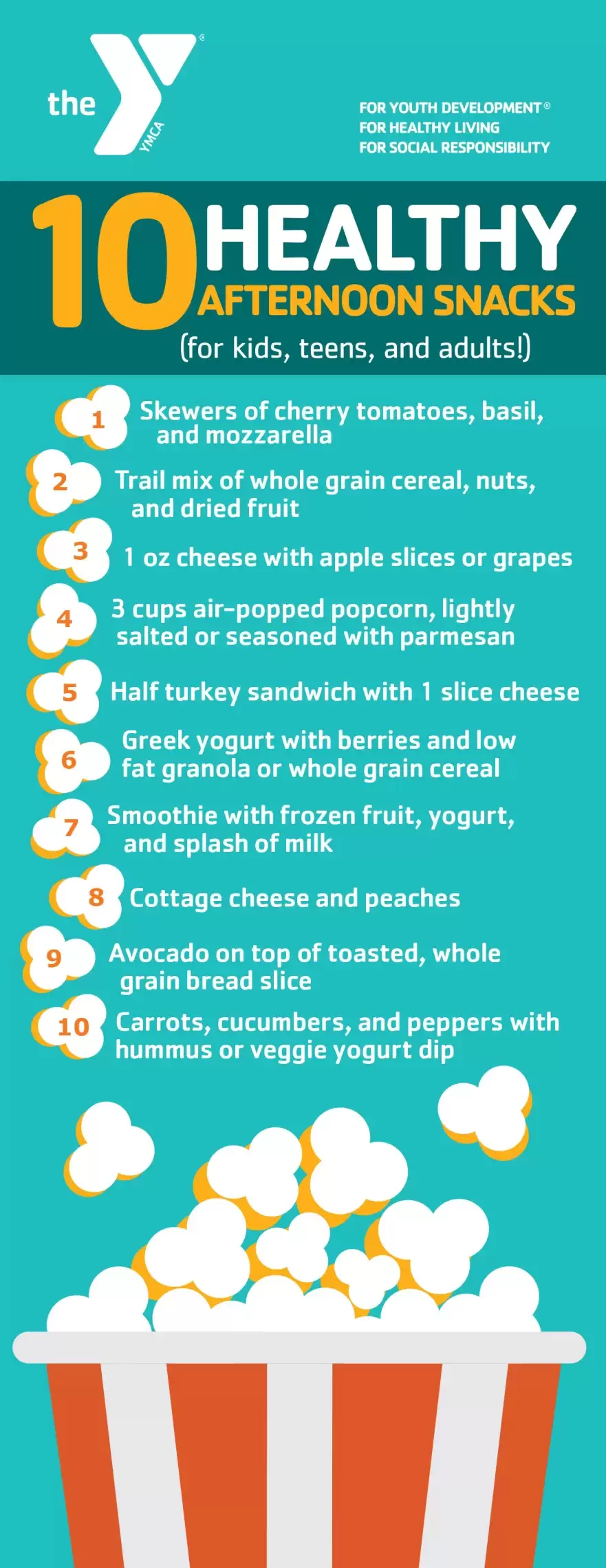By Jen Hartman, former YMCA Registered Dietitian Nutritionist
It’s 3 p.m. My boys just got off the bus, dropped their backpacks onto the floor, and threw off their shoes. Before we can even talk about school or what their homework load looks like for the day, they are asking for a snack. They are "starving!” Sound familiar?
Or maybe you are that mom who has to get her kids to practice in 30 minutes and you are rummaging through the pantry to find them a snack and water bottle to have on the way. Or maybe you are the parent of a teen who raids the pantry and fridge while you are still at work. Even our toddler-age kids are begging for snacks between meals.
It’s inevitable: kids and snacks go hand in hand.
Snacks are actually an important part of our diet. It’s rare that we are able to meet all our nutrient needs within just three meals a day, so snacks can help fill in the gaps. Snacking can also help to curb our appetite for later meals and sustain our energy throughout the day.
Snacks are especially important for our kids and teens.
Healthy snacks can help our kids to stay focused in school, on homework, and in after school activities. However, most of our kids and teens today are indulging in unhealthy snacks such as chips (hot Cheetos, anyone?), crackers, snack cakes, sweets, candy, and sweetened beverages such as sodas and sports drinks. Eating too many of these unhealthy snacks can lead to poor performance in school and after school activities, weight gain, obesity, and other health issues, such as diabetes or high cholesterol.
Be your child’s ambassador for good health!
Stock the refrigerator and pantry with healthy options. Set a good example of healthy eating and snacking. Educate your kids on why healthy foods are important. Help them to understand moderation and how unhealthy foods can fit into our diet for special treats. To help you get started on restocking the kitchen with healthy snacks, follow these simple guidelines:
- Include protein (eggs, dairy, nuts, nut butter, or meats)
- Add fiber (from whole grains, fruit, or veggies)
- Avoid snacks that exceed 200 calories and/or offer no nutrition value

